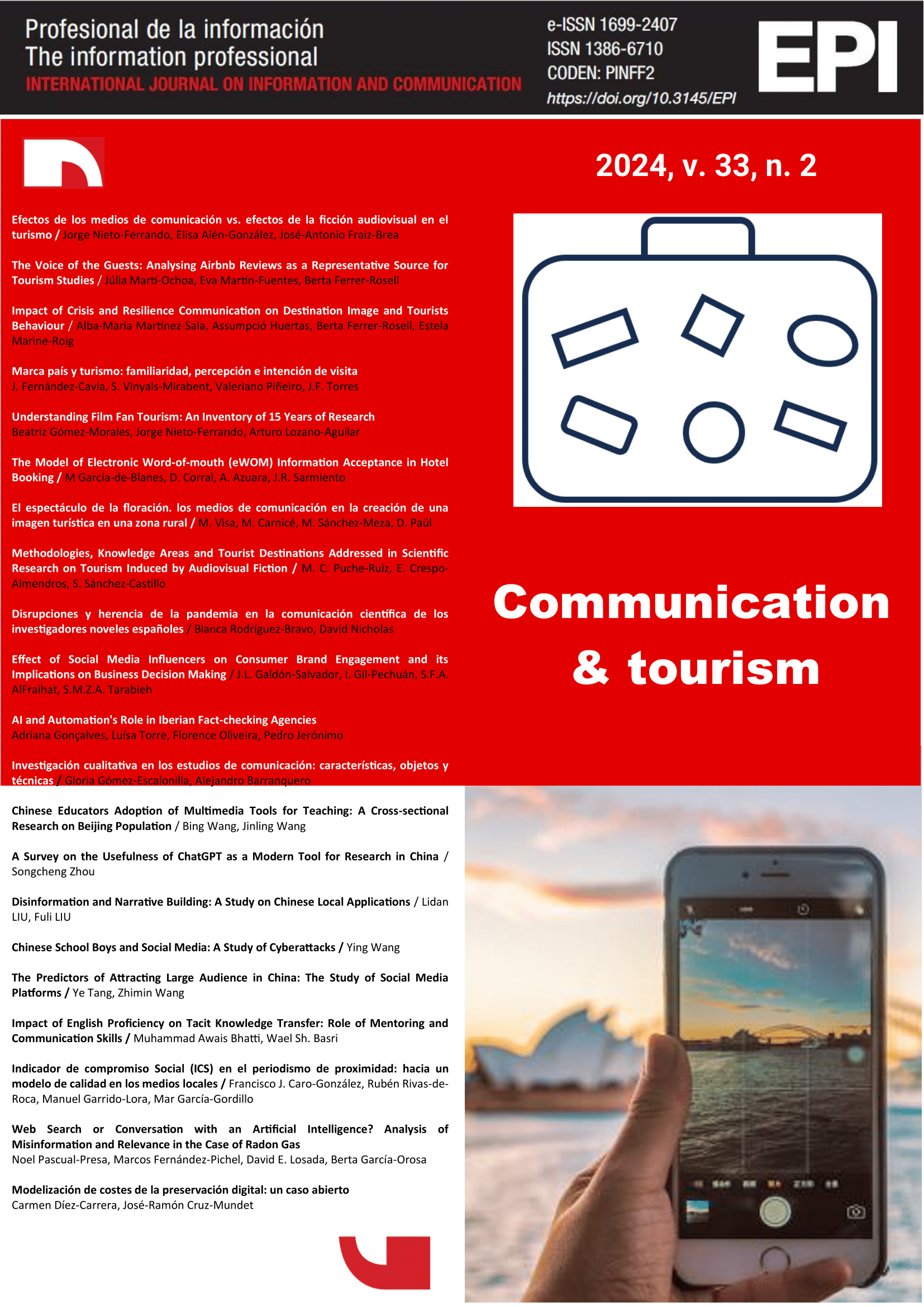A Survey on the Usefulness of ChatGPT as a Modern Tool for Research in China
DOI:
https://doi.org/10.3145/epi.2024.0213Resumen
ChatGPT is famous for assisting in research, among other AI-generated research assistance modules. It is being updated
and its users are getting reliable assistance in research work. However, the current study focused on measuring the
impact of ChatGPT on academic research, finding theory, data analysis, proofreading, and error identification. The
motivation for this research was to contribute knowledge of how ChatGPT is helpful for researchers for university-level
scholars in China. Data was collected from scholars working in Chinese universities. Considering the convenience
sampling method, a survey-based approach was used to collect data. The study's empirical findings confirmed the
significant impact of ChatGPT on academic research, finding theory, data analysis, proofreading, and error identification.
This research addressed the gaps in the literature as previously scholarly research has not focused on the phenomena
investigated by this research. Hence, this study has some practical implications for advancing the use of ChatGPT for
Chinese university-level scholars to improve their research contributions. Chinese universities are recommended to use
ChatGPT in their scholarly research work, but careful use is required. Furthermore, the scholars are supposed to
acknowledge the use of artificial intelligence (AI) generated tools in research publications.
Descargas
Downloads
Publicado
Número
Sección
License
Copyright (c) 2024 Profesional de la información

This work is licensed under a Creative Commons Attribution 4.0 International License.
Condiciones de difusión de los artículos una vez son publicados
Los autores pueden publicitar libremente sus artículos en webs, redes sociales y repositorios
Deberán respetarse sin embargo, las siguientes condiciones:
- Solo deberá hacerse pública la versión editorial. Rogamos que no se publiquen preprints, postprints o pruebas de imprenta.
- Junto con esa copia ha de incluirse una mención específica de la publicación en la que ha aparecido el texto, añadiendo además un enlace clicable a la URL: http://revista.profesionaldelainformacion.com
La revista Profesional de la información ofrece los artículos en acceso abierto con una licencia Creative Commons BY.





